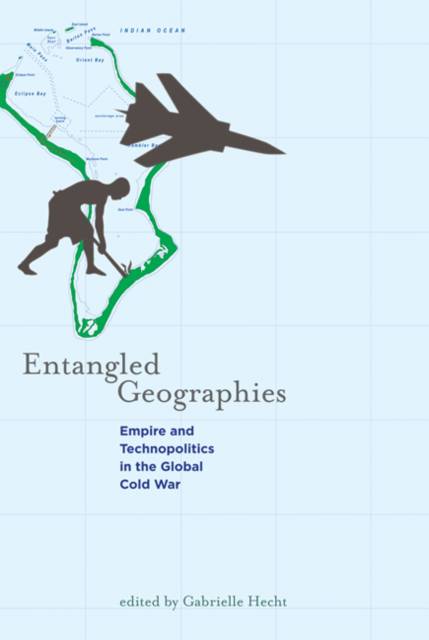
- Afhalen na 1 uur in een winkel met voorraad
- Gratis thuislevering in België vanaf € 30
- Ruim aanbod met 7 miljoen producten
- Afhalen na 1 uur in een winkel met voorraad
- Gratis thuislevering in België vanaf € 30
- Ruim aanbod met 7 miljoen producten
Entangled Geographies
Empire and Technopolitics in the Global Cold War
Omschrijving
Investigations into how technologies became peculiar forms of politics in an expanded geography of the Cold War.
The Cold War was not simply a duel of superpowers. It took place not just in Washington and Moscow but also in the social and political arenas of geographically far-flung countries emerging from colonial rule. Moreover, Cold War tensions were manifest not only in global political disputes but also in struggles over technology. Technological systems and expertise offered a powerful way to shape countries politically, economically, socially, and culturally. Entangled Geographies explores how Cold War politics, imperialism, and postcolonial nation building became entangled in technologies and considers the legacies of those entanglements for today's globalized world.
The essays address such topics as the islands and atolls taken over for military and technological purposes by the supposedly non-imperial United States, apartheid-era South Africa's efforts to achieve international legitimacy as a nuclear nation, international technical assistance and Cold War politics, the Saudi irrigation system that spurred a Shi'i rebellion, and the momentary technopolitics of emergency as practiced by Medecins sans Frontières.
The contributors to Entangled Geographies offer insights from the anthropology and history of development, from diplomatic history, and from science and technology studies. The book represents a unique synthesis of these three disciplines, providing new perspectives on the global Cold War.
Specificaties
Betrokkenen
- Uitgeverij:
Inhoud
- Aantal bladzijden:
- 337
- Taal:
- Engels
- Reeks:
Eigenschappen
- Productcode (EAN):
- 9780262515788
- Verschijningsdatum:
- 4/04/2011
- Uitvoering:
- Paperback
- Formaat:
- Trade paperback (VS)
- Afmetingen:
- 154 mm x 227 mm
- Gewicht:
- 467 g

Alleen bij Standaard Boekhandel
Beoordelingen
We publiceren alleen reviews die voldoen aan de voorwaarden voor reviews. Bekijk onze voorwaarden voor reviews.










